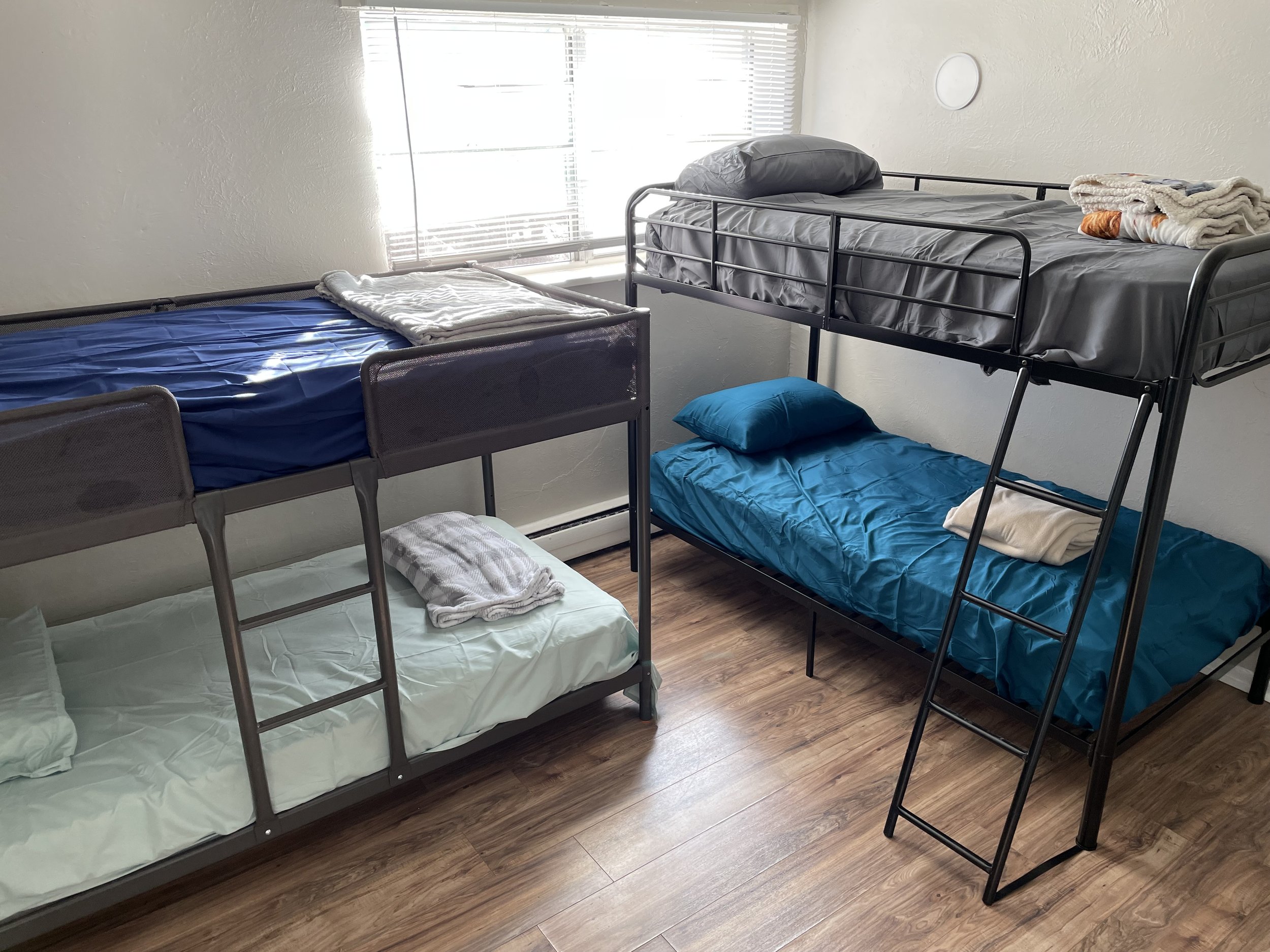Year in Review: ACC's Co-Sponsorship Program
Despite the challenges of 2021, ACC successfully launched a new program: Co-Sponsorship. At its heart, co-sponsorship creates opportunities for communities to play a key role in supporting refugees and other forcibly displaced individuals as they settle into their new homes.
Our headquarters, the Ethiopian Community Development Council, was one of only eight initial grantees of the Community Sponsorship Catalyst Fund. Two ECDC offices were selected for the pilot, including Denver’s ACC office and the DC Metro office. As a part of the pilot, ACC was asked to train at least two co-sponsor teams by the end of 2021, since the majority of the year was focused on behind-the-scenes program development. We are excited to report that we exceeded these goals for the implementation phase of the program in its first year. ACC Denver was recognized by our national headquarters in our leadership of developing a successful co-sponsorship program.
As of December 31st, 2021, ACC had fully trained eight co-sponsor teams in 2021. Of these fully trained teams, five teams have already been matched with a refugee family and begun their period of service. Three teams are awaiting a match with a refugee family and five additional teams are in the process of signing up for trainings and completing their applications.
Our co-sponsor teams are groups of at least seven individuals, often from a faith-based organization or a workplace. ACC's Co-Sponsorship Program requires that this team of volunteers walk alongside a refugee family for 9 months, provide at least $3000 in financial support, and “Nest a Home” for the family.
In 2021, co-sponsor teams raised $34,071 in financial contributions* and an estimated $10,000 in in-kind donations, going directly to refugee families.
*Financial contributions include the donations from the five co-sponsor teams who are actively involved with refugee families
Co-Sponsorship Spotlight: Causal Design
Causal Design, a social enterprise with a local Denver office, assembled a team of coworkers to participate in ACC's Co-Sponsorship Program. Causal Design's team was the first to be matched with a refugee family and will continue working alongside the family for an estimated 9 months of service.
“Something that has struck our team has been how much work it’s been for us, and just imagining how much more work it would have been if it was just ACC or just the family. The opportunity to be involved in all of that- we see it as helping share that challenge that would have otherwise been faced by the family and ACC alone.”
What is the importance of co-sponsorship in the next chapter of U.S. refugee resettlement? How has co-sponsorship impacted the design of ACC’s greater volunteer programs?
President Joe Biden announced on February 4, 2021 in an executive order that, “To meet the challenges of restoring and expanding the US Refugee Admissions Program, the United States must innovate, including by effectively employing technology and capitalizing on community and private sponsorship of refugees, while continuing to partner with resettlement agencies for reception and placement.”
In late 2019, a coalition of funders including the Open Society Foundations, The Shapiro Foundation, and philanthropists G. Barrie Landry and Laurie T. Franz, came together, “to establish a new fund to help organizations across the United States develop, implement, and enhance community sponsorship programs.” This effort is known as the Catalyst Fund, the fund that was granted to our headquarters and seven other initial grantees.
Throughout the first half of 2021, ACC began researching successful co-sponsorship models across the U.S. and meeting with national leaders from other agencies. We spoke to direct service staff, holding focus groups to hear feedback on our proposed co-sponsorship program model. We surveyed our community members who had extensive experiences working with ACC volunteers, asking them what was most beneficial to them in their early months after arriving in a new country.
We reimagined our levels of engagement, or “opportunities to welcome,” expanding from two levels to three, with co-sponsorship being the highest level of engagement for our volunteers. Community members now have the chance to welcome a new refugee family at three different levels of time and financial commitment: Level One (Nest a Home), Level Two (First Friends), or Level Three (Co-Sponsorship).
These reimagined opportunities also impacted the way we train our volunteers- leading us to recreate our, “Training 2- Partnering with Refugees at ACC,” which is required for all First Friends and co-sponsorship teams. As we continue to improve upon our commitment to DEI (Diversity, Equity, and Inclusion), we continue to modify our volunteer trainings- which now include expanded exercises on recognizing privilege and power, setting healthy boundaries, and more.
The trainings and materials developed at ACC Denver are currently being modified to be used by our headquarters to develop a national co-sponsorship program which will be implemented at other branch offices across the U.S.
We want to extend a deep thank-you to the teams who have come alongside us in 2021 and have stepped up to help us welcome increased numbers of Afghan evacuees and refugees. We are honored to partner with you in this work.
“We’ve been thrilled by the response of the greater Denver community to our Co-Sponsorship Program. ACC is asking a lot of our co-sponsor teams, but they are proving to be fully up to the challenge by enthusiastically embracing our new families in social networks that are providing crucial support and friendship.”
Want to learn more about co-sponsorship? Visit this page on our website.




